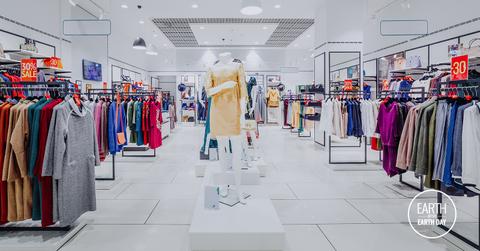What Is Fast Fashion? (Plus Alternatives That Are Sustainable and Affordable)
Fast fashion may seem good for your wallet — but it’s bad for the planet.
Updated June 24 2019, 3:14 p.m. ET

Fast fashion refers to an unsustainable apparel-making method that produces inexpensive clothing rapidly in response to the latest style trends. Companies that practice fast fashion sacrifice both the efficacy of their materials and the sustainability of their making methods in order to capitalize on a quick-to-change industry that heavily relies on trends.
The key word here is “fast.” Companies would rather produce, produce, produce in order to keep up with what’s hot rather than take the time to make clothes the way they should be made. Fast fashion significantly contributes to greenhouse emissions and since they seldom take advantage of sustainable textiles, these kinds of clothes often consist of synthetic chemicals and materials, microplastics, and non-sustainable dyes.
The reality is fast fashion uses cheap materials — that’s why the clothes are so cheap! Five-dollar tees and BOGO sales: Great for the wallet, yes, but these materials do not break down, which exacerbates fast fashion’s negative impact on the environment. After all, clothing waste that cannot break down accounts for 20% of our water pollution. For an inexpensive price in the short term, we all pay a worse price in the long run.
Curious to learn more about fast fashion? Keep reading for everything you need to know!
Which companies practice fast fashion?
Unfortunately, fast fashion is rampant right now. Think of the stores that keep up with the ever-changing trends, often inspired by celebrities: H&M, Forever 21, Zara, Target… These stores are constantly trying to revamp their inventory to stay up to date on the latest trends. That inherently makes them a part of the fast fashion movement.
Generally speaking, H&M and Zara are the big players. H&M is the oldest of all the fast fashion brands, as it first opened as Hennes in Sweden in 1947, and Zara’s 15-day process of designing to selling a garment is the reason The New York Times coined the term “fast fashion.” But there are other players, too. Some of the other important names in fast fashion include UNIQLO, GAP, TopShop, Forever 21, Zaful, Boohoo, and Fashion Nova.
Not sure how to spot a fast fashion brand? Here are the tell-tale signs: Fast fashion brands typically offer thousands of styles, usually very on-trend; fabrics are generally made of cheap, low-quality materials; clothes are made in a very short turnaround time; garments are available for a limited amount of time.
What are some alternatives that are sustainable and affordable?
There are several alternatives to buying into fast fashion. First and foremost, you can thrift. Thrifting gives used garments a new life and keeps them out of our already-filled-to-the-brim landfills.
Another option is kind of Marie Kondo-inspired: Vow to buy less. Not that you have to go full-blown minimalistic, but the less you buy, the less your carbon footprint.
Make purchases based on longevity. One of the main reasons fast fashion sucks so much is that the quality of materials is bad. They generally don’t last long. A few years and these garments find themselves in landfills because either they aren’t on trend anymore or because the garment couldn’t hold up. But if you vow to buy intentionally with the goal of choosing pieces that will last, you will find that your garments will have a much longer shelf-life. There are lots of fibers out there, so if you’re not sure what to look for, here’s a few pointers: linen, silk, hemp, and wool are considered low-impact textiles. Also, Piñatex is a vegan and sustainable alternative to leather made from pineapple leaves.
Want to know exactly which ethical fashion brands to look out for? Each of these brands included below follows sustainable practices and unlike some ethical brands that get a pricey rap, these are generally on the affordable side: Everlane, Pact, ThredUp, Alternative Apparel, Kotn, and Outdoor Voices.
What certifications should you look for in sustainable clothing?
If you are ever uncertain about the practices of a clothing brand, Sustainable Apparel Coalition is a resource for assessing a store’s environmental impact. The coalition developed a tool called the Higg Index, which measures the environmental, social, and labor impacts of a company so that the industry can then address inefficiencies and provide sustainable solutions.
Also, the Good on You app has more than 2,000 ratings of ethical brands. The app lets users check individual sustainable fashion labels to see what they’re rated.
As far as clothes-shopping sustainably, there are a few certifications that can aid in the process. These certifications are crucial because they reveal a lot of information about how the garment was made and what the working conditions are like. Some certifications to look out for include Fair Trade — which constitutes a brand that pays fair wages to workers in developing countries — Global Organic Textile Standard—which is awarded to textiles with a minimum of 95 percent organic fibers — EcoCert — a certification that evaluates organic agriculture products — and Oeko-Tex Standard — a four-tier system that evaluates the toxicity of chemicals in clothes.